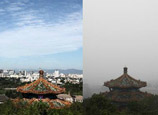
Fugitive US intelligence analyst Edward Snowden has submitted asylum requests to 19 more nations including Cuba, Venezuela, Brazil, India, China, Russia, Germany and France, the Wikileaks website said on Monday.
China on Tuesday did not directly comment on Snowden's request to China, but said "we are keeping an eye on the issue".
"We noticed related reports, but we have no further information to offer," Foreign Ministry spokeswoman Hua Chunying said at a daily news conference.
Several of the other countries that Wikileaks says Snowden has asked for asylum have said he cannot apply from abroad. Officials in Germany, Norway, Austria, Poland, Finland and Switzerland all said he must make his request on their soil.
India said there was no reason to accept the request for political asylum by Snowden, the country's foreign ministry said on Tuesday.
"Indian Embassy in Moscow did receive a request for asylum in a communication dated June 30 from Mr Edward Snowden," Syed Akbaruddin, a spokesman for India's foreign ministry, said on Twitter.
The asylum requests reported by Wikileaks could not be independently authenticated.
On Monday, Snowden accused Washington of pressuring foreign leaders to refuse him refuge and "using citizenship as a weapon".
"Although I am convicted of nothing, (the United States) has unilaterally revoked my passport, leaving me a stateless person," Snowden said in a statement published by the Wikileaks website.
"Their purpose is to frighten, not me, but those who would come after me."
India defends spying
India's foreign minister on Tuesday defended the vast US surveillance program of phone logs and Internet data revealed by Snowden.
"Some of the information they got out of their scrutiny they were able to use to prevent serious terrorist attacks in several countries," Salman Khurshid said in Brunei in a broadcast interview.
Snowden, who has been on the run since releasing sensitive National Security Agency documents, is believed to have been in Moscow airport's transit zone since his arrival from Hong Kong on June 23. He abandoned his asylum bid in Russia on Tuesday.
However, Japan sought answers from the US on Tuesday over claims it had bugged its key Asian ally, as the list of embarrassing revelations from Snowden grows longer.
Snowden's latest major leak about US spying on EU countries also angered many European governments and threatens to derail preparations for talks on a huge free trade deal between Washington and Brussels.
US President Barack Obama brushed aside sharp European criticism on Monday, suggesting that all nations spy on each other as the French and Germans expressed outrage over alleged US eavesdropping on European Union diplomats.
He said the US would provide allies with information about new reports that the NSA had bugged EU offices in Washington, New York and Brussels. But he also suggested such activity by governments would hardly be unusual.
















 China's weekly story (2013 6.22-6.28)
China's weekly story (2013 6.22-6.28)


![]()
